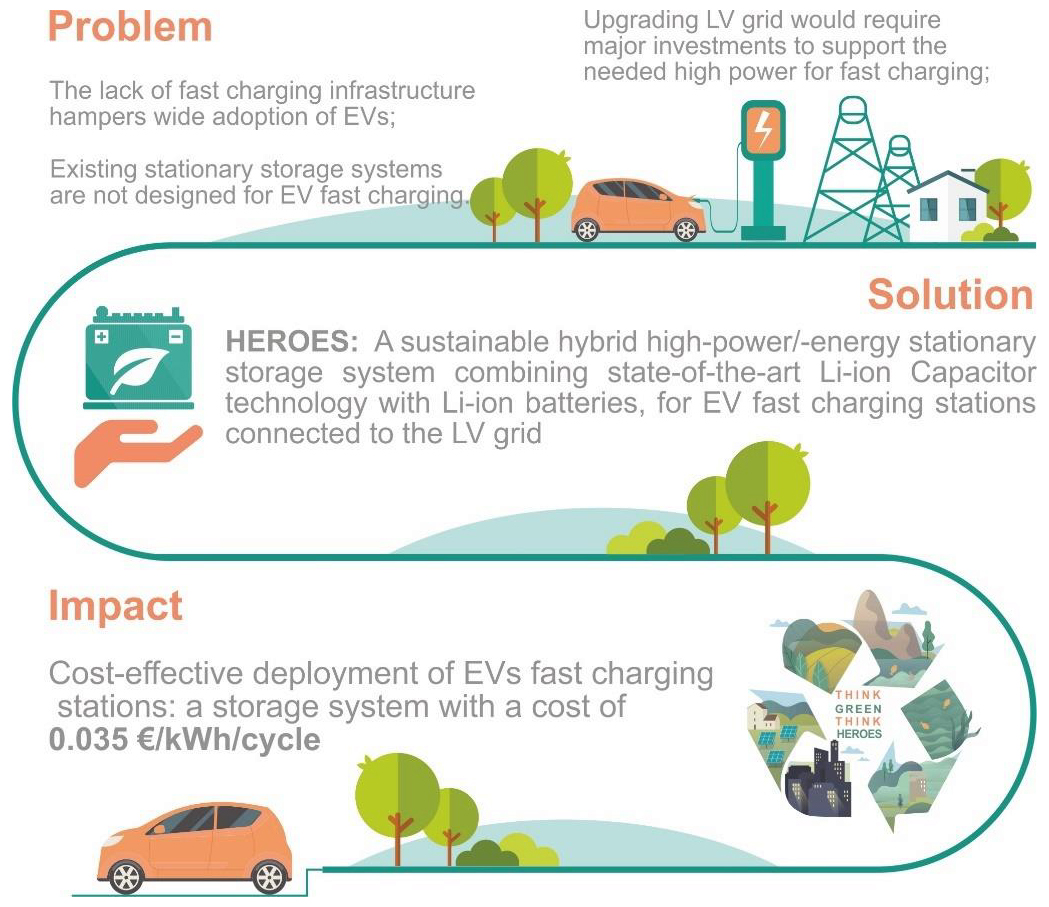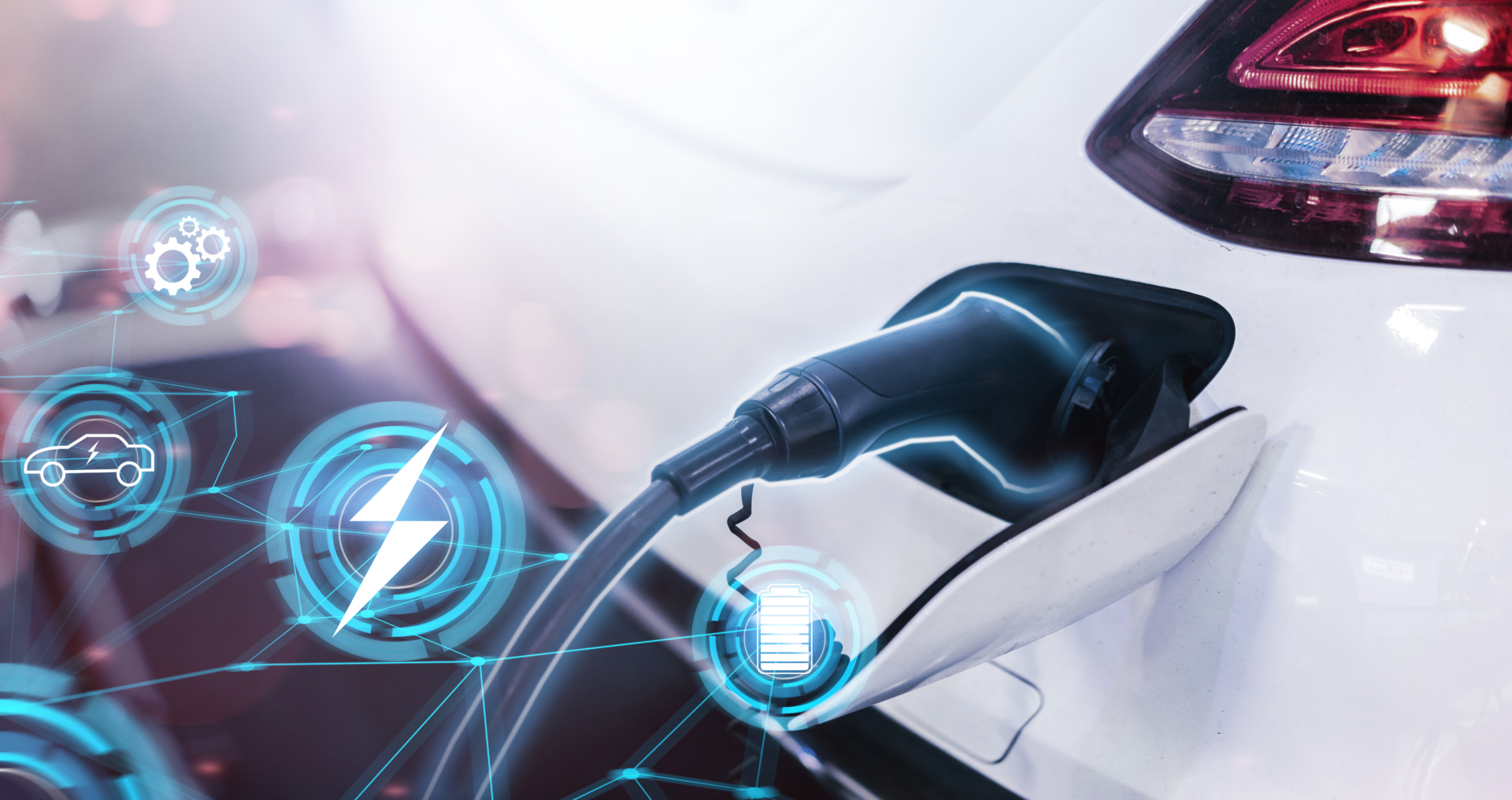HEROES
Electric vehicles (EV) are expected to play a key role towards a decarbonised transport system and thus contribute to meet EU’s ambitious goal to reduce greenhouse gas (GHG) emissions. While there has been and continues to be major development in batteries, reducing costs and increasing energy and lifetime, no major changes have been witnessed in the charging infrastructure. As of today, most of charging stations are of 22 kW and 50 kW, where it takes several hours to charge an EV. This long charging time is not acceptable for the mass and thus poses a major barrier for a wider market penetration of EVs.
HEROES will develop and demonstrate a disruptive hybrid high power/high energy stationary storage system for fast charging of electric vehicles (17.5 min) to be used in medium-size charging stations connected to the LV grid.
The HEROES system will enable widespread fast charging of EVs, cost-effectively, without the need for major investments in the grid. The system will combine Li-ion capacitor (LiC) with Li-ion batteries (LiB), which will provide both high power density as well as high energy density.

State of the art
The HEROES system will utilise combining state-of-the-art Li-ion capacitor (LiC) with high power and high energy densities, with Li-ion batteries (LiBs) to store high amounts of energy and serve as back-up when the charging demand of EVs surpasses the LiC and grid connection capacity. The combination will bring a higher efficiency and better performance of the system, as well as longer battery life, as the LiC can protect the LiB from accelerated degradation, more energy from battery cells, simpler and cheaper management, and lower overall system cost, all with a strong sustainable drive.
To achieve this overall objective, the project will include research and development activities of key technological enablers such as the LiC cells and modules, a new Battery Management System, a DC/DC converter specifically developed for high input and output voltage ranges, and Energy Management System (EMS). The prototype system will be demonstrated for the fast charging of EVs in operational environment.
The consortium includes partners that cover the full value chain of energy storage, placing the consortium in a perfect position to develop scientific and technological breakthroughs as well as seizing novel market opportunities.
